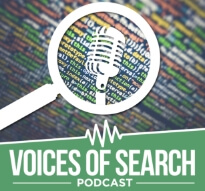About the speaker
Michelle Robbins
Aimclear

- Part 1Why Brand Marketers thing Everything Is Content — Michelle Robbins // Aimclear
- Part 2What SEOs Can Learn from Brand Marketers — Michelle Robbins // Aimclear
- Part 3Incorporating SEO into your integrated marketing efforts — Michelle Robbins // Aimclear
- Part 4How SEO and Engineering can co-exist — Michelle Robbins // Aimclear
- Part 5 The everything is data philosophy — Michelle Robbins // Aimclear
Show Notes
-
?02:26 -“Everything is data” philosophy ? 03:23 -How is content considered data ? 06:06 -What is important about data ? 08:33 -Where does the science stop and where does the art start ? 10:56 -Difference in data-driven vs. data-informed
Episode Summary
-
“When Im talking about data, Im not talking about numbers. I think the types of information that we utilize to derive insights, to make predictions, and to decide what we are going to do.” -Michelle “The sources of data are many and varied. Its not just about the number of your site visitors, its what those visitors are doing, so its behavior. I think a lot about behavioral data and what the sources of behavioral data available to marketers and SEOs are and whether or not they are being utilized for maximum optimization.” -Michelle “Its the data around the content. What are they doing in response to being exposed to that content.” -Michelle “We make a lot of assumptions on how we would approach or how we want the optimal path to be. But when you look at the behavioral data, sometimes weve actually made it harder for the users to convert, made it more difficult for them to consume the content and the behavioral data exposes that more so than the numerical data.” -Michelle “I just think that the philosophy of data is everything takes some of the emotion and the art out of the practice of marketing and SEO specifically where emotion and mindsets are something that influences consumer behavior and its not necessarily data and quantifiable.” -Ben “I think that leveraging machines, data, the behavioral signals, the qualitative and quantitative outputs that we can get are incredibly importantbecause without those then we really are just trying a lot of different things.” -Michelle “Understanding that behavioral data points can inform you as to whether or not to continue in that direction or not continue in another direction. Objectively, when youre talking about what youre doing with your content and your marketing, if you are doing things that are not data-informed then youre probably missing out on a lot of opportunities.” -Michelle “I think that you can make decisions based on emotion and feeling and natural instinct, your gut and intuition but it might be better to look at qualitative. I think we can do more with data than we understand we can do.” -Michelle “Machines are good at ingesting vast amounts of data and disparate data and at categorizing, organizing, spitting out information about that data that we can intake and apply our own creativity, our own analysis and insights to make a better informed next decision.” -Michelle “In SEO, traditionally, its been very very much data-driven, and very scientific about peoples approach and now that we are seeing the rise of zero-clicks, more brand SEO, starting to think about the art of marketing, the storytelling that goes into it and understanding that Google can interpret all of these data and understand what you mean.” -Ben “Focusing on the art and the creative component of SEO as a marketing cha el and not just thinking about the scientific pursuit of optimizing to please Google is a very important conversation to have.” -Ben “I think its not that Google even has a greater ability to understand the content that we SEOs put out there, its that Google has the greater ability to understand what the searcher is actually looking for.” -Michelle “We dont have as many people on the world data as much as Google does and Google is better in many instances of surfacing information specifically related to what a person is looking for. They are getting much more image-heavy and more focused on interactive video and they are constantly changing the layout of the search results, and this isnt to frustrate SEOs. Its to be the best resource for users.” -Michelle “I would also say that Im not such a fan of being data-driven as being data-informed. A lot of data is not necessarily better. Having one or another data point does not necessarily give you the best information you need to make a decision. Its a combination of data and really utilizing how to analyze and interpret that data and not taking it at just face value.” -Michelle
- Part 1Why Brand Marketers thing Everything Is Content — Michelle Robbins // Aimclear
- Part 2What SEOs Can Learn from Brand Marketers — Michelle Robbins // Aimclear
- Part 3Incorporating SEO into your integrated marketing efforts — Michelle Robbins // Aimclear
- Part 4How SEO and Engineering can co-exist — Michelle Robbins // Aimclear
- Part 5 The everything is data philosophy — Michelle Robbins // Aimclear
Up Next:
-
Part 1Why Brand Marketers thing Everything Is Content — Michelle Robbins // Aimclear
Play Podcast -
Part 2What SEOs Can Learn from Brand Marketers — Michelle Robbins // Aimclear
Play Podcast -
Part 3Incorporating SEO into your integrated marketing efforts — Michelle Robbins // Aimclear
Play Podcast -
Part 4How SEO and Engineering can co-exist — Michelle Robbins // Aimclear
Play Podcast -
Part 5The everything is data philosophy — Michelle Robbins // Aimclear








